Spirulina is a form of blue-green algae that flourishes in warm, alkaline lakes, and is increasingly recognised as a natural remedy for high blood pressure. Spirulina provides over 100 easily absorbed nutrients including amino acids, antioxidant carotenoids, vitamins, minerals, enzymes and other bioactive substances that can lower blood pressure.
Spirulina reduces hypotension
A recent study assessed the antihypertensive effect of Spirulina platensis on 40 hypertensive patients whose hypertension was controlled by diet and lifestyle or by a single antihypertensive drug. Their average age is 53. They are slightly overweight but weigh steadily. Those who received blood pressure treatment had received the same treatment for at least six months.
The volunteers were divided into two groups. One group took 2 grams of Spirulina every day and the other group took placebo for three months. They were instructed not to make any other changes to their diet and exercise during the study.
At the end of the trial, those taking Spirulina supplements had a significant decrease in blood pressure of 6/5 mmHg (from 149/84 mmHg to 143/79 mmHg), while those taking placebos had a slight increase in blood pressure of 1/1 mmHg (from 150/85 mmHg to 151/86 mmHg).
Notably, despite not trying to lose weight, people taking Spirulina lost 5 kilograms (75.5 kilograms to 70.5 kilograms) in 12 weeks, while those taking placebos lost 2.1 kilograms (from 70.4 kilograms to 72.5 kilograms).
How Spirulina Reduces Blood Pressure
The significant decrease in blood pressure may be partly due to weight loss, but the measurement of arterial stiffness also indicates an improvement in arterial elasticity (endothelial function). This is believed to be caused by the antioxidant activity of Spirulina platensis and the promotion of nitric oxide synthesis in the arterial wall, which dilates the arteries.
Spirulina is also a source of potassium, calcium, magnesium and vitamin C, and has antihypertensive effects.
Dose of Spirulina platensis
Spirulina supplements are provided in powder form and can be added to foods, drinks and ice sands, as well as tablets and capsules taken with meals.
The recommended dosage of Spirulina is different, but in the above study, 2 grams per day. High doses of 6G or more per day can be eaten as food without significant harm.
Choose a recognized mainstream Spirulina brand, preferably certified organic Spirulina, which means it has grown in unpolluted waters.
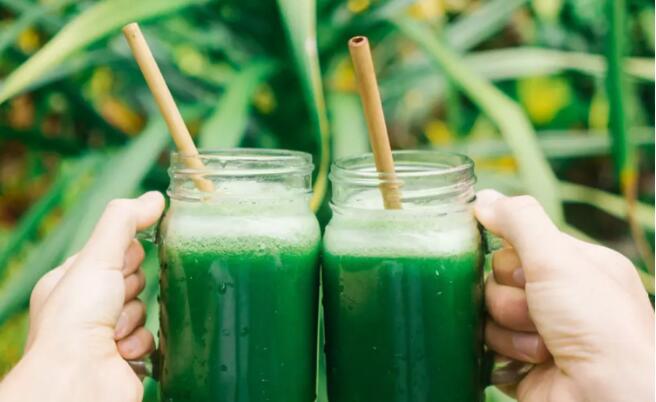 Spirulina Smoothie-APPLE CIDER VINEGAR
Spirulina Smoothie-APPLE CIDER VINEGAR• 1 teaspoon Apple Cider Vinegar • 2 cups chamomile Chamomile Tea • 2 cups Spinach • 1/4 teaspoon Earthrise Spirulina • 1 medium Pear, peeled • 1 medium Banana • 1 tablespoon Honey...
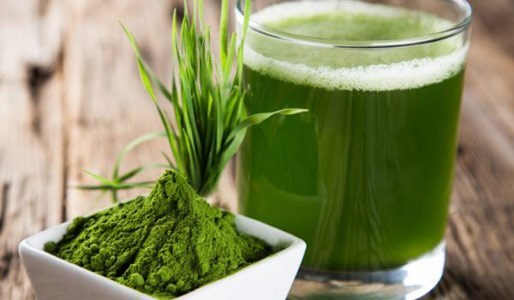 spirulina capsules benefit
spirulina capsules benefitSpirulina is made up of 65% protein. This is an extremely amount of protein high for a plant, and one of the reasons it is becoming more and more popular as a supplement. It also contains sources of all nine essential amino acids. It’s an easy, healthy way to boost your protein intake, and a great source of protein for vegetarians. Furthermore, this protein is highly absorbable. ✔ Contains esse...
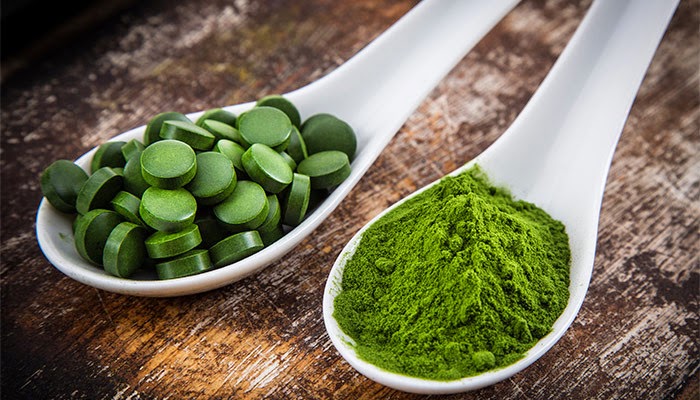 spirulina cereal benefits
spirulina cereal benefitsWhat is the benefits of spirulina cereal? ...
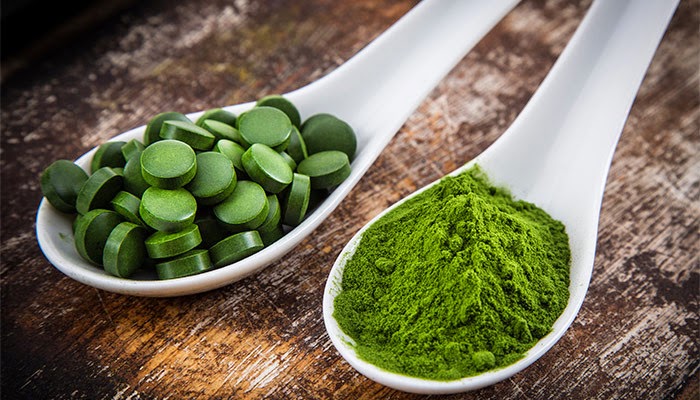 Benefits of spirulina
Benefits of spirulinaSpirulina is a blue-green algae that is one of the most densely nutrient packed superfoods on earth. This amazing environmentally sustainable algae has been a nutritious dietary supplement for thousands of years....
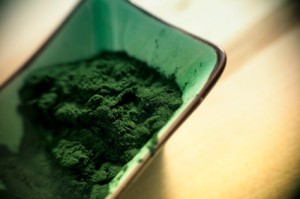 spirulina benefits during pregnancy
spirulina benefits during pregnancySpirulina is an excellent way to support healthy reproduction and pregnancy through its superior nutrients. Spirulina is a kind of cyanobacteria, commonly known as cyanobacteria. Proteins in Spirulina are considered to be the best quality proteins, superior to all other plant proteins, including legumes (beans, peas, soybeans, etc.). It is also an excellent source of vitamins and minerals. Because...
 spirulina benefits diabetes
spirulina benefits diabetesHere are some benefits of Spirulina for diabetic patients: Spirulina naturally lowers blood sugar levels...
Sign up to receive exclusive promotions and health recipes via email.

